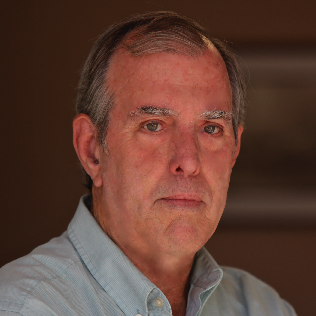Autism’s collision with the law
March 24, 2024

Daniel Blackburn
OPINION by DANIEL BLACKBURN
Update: Bankman-Fried was sentenced to 25 years in a federal prison on March 28 by Judge Lewis Kaplan.
Here’s a reality I barely recognized only several months ago. Now, it is burned into my consciousness:
“Autistic people are being overlooked and not given the support they need during initial law enforcement interactions and in the courts by attorneys and judges at the state and federal level.”
This was written by Tyler T. Whitney of the Emory University School of Medicine. But it is the shared conclusion of legions of people who have spent their professional lives studying the issue and advocating for some kind of accommodation for people on the autism spectrum who find themselves ensnared in the legal system — often with disastrous outcomes.
Late last year, my wife Maria was watching a segment on CBS’ 60 Minutes when she turned to me and asked, “Are you hearing this?”
Michael Lewis, whose book on Sam Bankman-Fried and his FTX company is a best-seller, was discussing Bankman-Fried’s behavior leading up to and during trial and his often-confusing testimony.
His foot tapping, reluctance to maintain eye contact, perceived aloofness, and long, rambling answers to questions – described by some reporters as “word salad” – were being perceived as disrespect by the judge and prosecutors. And that was being cited as justification for a draconian prison sentence of 100 or more years.
That behavior – and the misinterpretation of it – too often influences the direction of prosecution, the outcome of verdicts, and the severity of sentences.
Listening to Lewis’ description of Bankman-Fried’s actions reminded us, quite graphically, of our own neurodivergent adult son.
Maria wrote a letter to presiding Judge Lewis Kaplan, relating, “As [the author] described Sam, I saw my son and kept wondering why autism never came up in the segment, because those of us knowledgeable about it could see his behavior, his mannerisms … and his brilliance… as huge indicators of him being a highly functioning individual clearly on the spectrum. I did not follow the trial closely but did look for some kind of public acknowledgement of his condition.
“I told him that Sam sounds very much like my own – his mannerisms, thinks in numbers (my son is discovering Pi patterns at the moment), brilliant, very good at making money, same dress style, or lack thereof, obsessive, socially awkward….”
In the ensuing weeks, Maria was able to contact Bankman-Fried’s father, Joe, to ask if Sam had been diagnosed as being on the autism spectrum. Yes, was the answer, but only after his arrest. (Sam Bankman-Fried was convicted of fraud and awaits sentencing in a New York courtroom on March 28.)
Others had also contacted Joe Bankman to make the same inquiry, and he put us in touch with them.
The result is an emerging effort featuring a website seeking to increase general awareness of the disadvantages faced by people on the spectrum when encountering law enforcement. Contributors to the site include some of the world’s most informed experts on the subject, including Professor Alexander Westphal of Yale University. The site is loaded with professional opinions, research findings, factual observations and practical suggestions for law enforcement, attorneys, and others in the legal system.
It is inarguable that autistic individuals may be at their most vulnerable point when appearing in American courtrooms as criminally charged defendants.
Under this kind of stress, many such individuals often will exhibit behavior that judges and others find confusing, disrespectful, dismissive, and irritating.
But let’s be real: far too often, and to the uninformed, a claim of neurodiversity by a criminal defendant is perceived as a convenient excuse for bad behavior and is ignored or ridiculed by observers.
It is not unreasonable to suggest that today there are thousands of autistic people in prison whose sentences are unjustly severe based not only on their crimes but on their behavior before and during their trials.
It’s long past time for the legal system to adapt to provide more accommodations for those diagnosed with autism. Then, and only then, will justice be fully and truly served.
Daniel Blackburn is a co-founder of CalCoastNews.






The comments below represent the opinion of the writer and do not represent the views or policies of CalCoastNews.com. Please address the Policies, events and arguments, not the person. Constructive debate is good; mockery, taunting, and name calling is not. Comment Guidelines